First Quarter: The lore of fungi
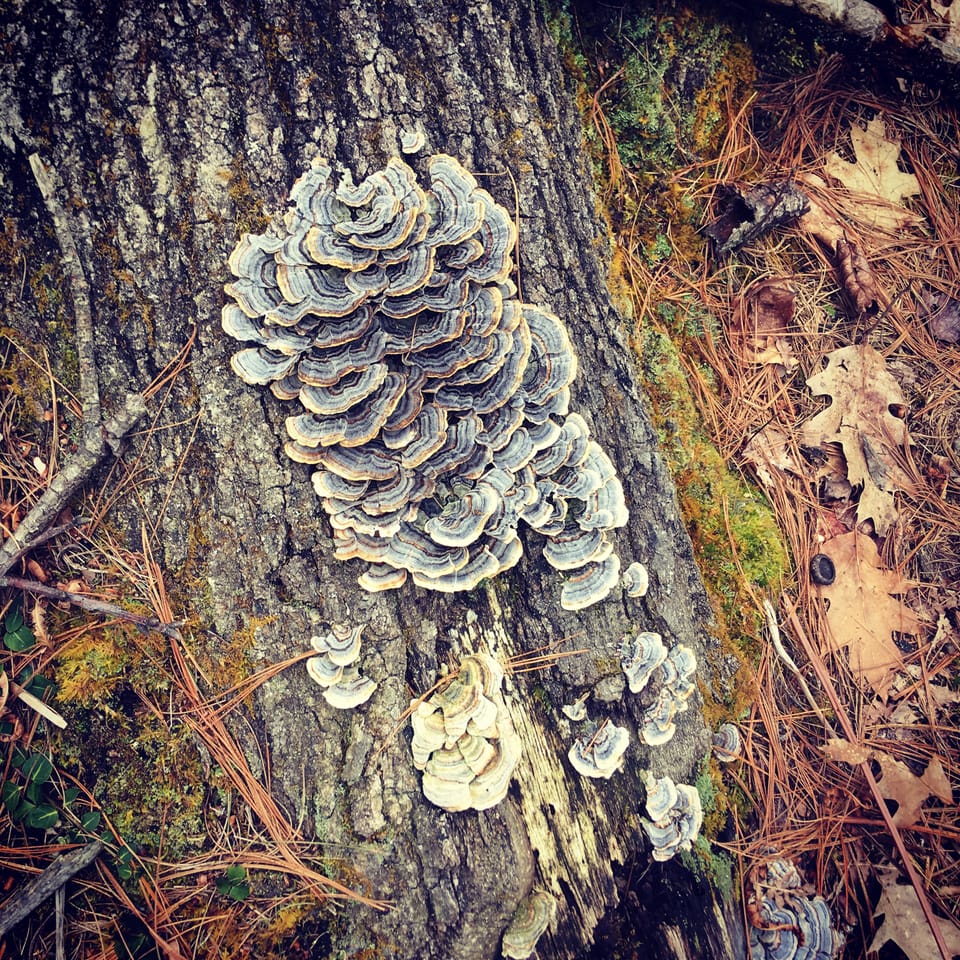
Hello. It's Friday. The autumn foliage in my particular patch of Maple Nation (as Robin Wall Kimmerer calls it) has not quite reached peak fire, but it's drawing near. A great many leaves are also dropping and carpeting the ground. We've received somewhat less rain than we ought to in this season, but there is enough moisture overall, and there is now enough decay, that I can regularly see mushrooms rising outside.
I am not remotely fit to call myself an amateur mycologist. I can identify only about a handful of fungal species with any confidence, and in some cases still not enough to trust myself to eat them if I found them in the wild (assuming they were even edible). I feel rather more comfortable with plants than fungi, overall; I'm allergic to mold, and indeed even was driven mad by it for a couple of years. I do love eating many mushrooms, but unlike my owner I am not fanatical about them and I can fuss about their texture when overcooked. I consider this kingdom of life mildly unsettling and well-suited for horror stories; a recent favorite in that vein is Ben Wheatley's film In the Earth. Nevertheless, my unease and unfamiliarity with fungi does not translate to a dislike. What I feel is almost reverential and mysterious. And despite my respiratory sensitivity, I think that one way or another I'm destined to form a much closer, more deliberate relationship with these beings.
For one thing, prior to my mold madness, I also experienced my periodically-referenced violent gastrointestinal illness, possibly due to inappropriately prescribed antibiotics, that destroyed my gut flora; as part of repairing that delicate ecosystem, I began a yeast-based probiotic supplement (Saccharomyces boulardii) that genuinely worked wonders and I have been taking ever since. For another thing, as discussed here in the past one of my god's faces is Dionysos, and as the god of fermentation he is necessarily a fungal god, so to relate to him — especially in autumn as this face takes supremacy over golden Apollo — I feel increasingly like seeking him in such forms of life. And lastly, recent discoveries over the last calendar year have awakened me better to how I should understand the Otherworld, with fungi as guards and guides to stepping beyond the veil.
Understanding the mushroom seems like the very epitome of hedgecraft, and I am ready to journey deeper.
What is a fungus?
This is not a rhetorical question. I know just enough on this subject to say things like how the fungal kingdom includes mushrooms, molds, and yeasts; fungi digest their food rather than photosynthesize and thus they require death or parasitism to exist; they spread themselves through extending their mycelial fibers under or along a surface, and via spores released from their fruiting bodies (essentially their heads, caps, etc. that emerge from the mycelium periodically). I also know a pathetic percentage of fungi have been scientifically identified compared to the number of fungi species postulated to exist: a few million potential species, with not even a quarter million described. Lastly, I know that animals and fungi are each other's closest relatives in the tree of life, despite the superficial similarities of fungi to plants. But again, I'm not even an amateur mycologist. I genuinely feel as if I do not know much about the defining characteristics of fungi beyond what I've just mentioned.
I would like to develop a clearer awareness of that, and I would also like answers to other questions like:
- Besides the fact that all life depends on water, why do fungi seem so particularly linked to moisture?
- Do fungi work as agents of decay because it's easiest for them to colonize stationary subjects, or because the chemistry of death itself fuels their growth?
- Why are so many fungal species "matched" with particular tree species or other plant life?
I have some halfway glimpses into these matters, especially the last one for reasons I'll address at the end of this post, but I don't think I could competently explain things to somebody else. And I suspect that if I did have that knowledge, I would better grasp what makes a fungus a fungus.
Perhaps the greater question should be:
Why is a fungus?
The foraging challenge supreme
The why of fungi seems at best rather dichotomous from the perspective of a human being. On the one hand, we can enhance already edible substances with some yeasts, we can create lifesaving antibiotics with some molds, and we can eat delicious and nourishing meals of some mushrooms. On the other hand, when our bodies (usually our orifices) are colonized by yeast, this is an unpleasant and potentially dangerous experience; most mold is not healthy to us even if we aren't allergic or immunocompromised; and for every edible mushroom there are (loosely) dozens of lookalikes whose powers range from tasting wretched to causing an excruciatingly painful, possibly hallucinatory death.
In learning to forage, I've long gotten the impression that mushrooms are treated in foraging discourse like the hardest "difficulty level" to overcome. Identification, as mentioned, is a spotty and constantly evolving area. The stakes can be very high. Certainty around species can be very hard to lock down, as fruiting bodies may look substantially different between the day they first emerge and the point at which they fully mature. Sometimes taking a spore print is necessary. Consulting a real mycologist is more frequently recommended. By comparison, plant foraging does present lethal dangers, but photographs and illustrations can often resolve ambiguities, and many of the easiest edible plants to find are hard to mix up with poisonous alternatives. The plants so toxic they can guarantee death are also usually not that hard to learn, or at least not widespread, certainly not often both.
Obviously I'm making a grotesque generalization and someone might want to shake me over it, but I simply mean to communicate that we do treat plant vs. fungi foraging differently for good reason. Outside the United States, there are other modern, de-indigenized cultures where people are more adventurous about mushroom hunting and will often treat the process like my geographic brethren treat pick-your-own apples; nonetheless, this is only possible through carefully preserved local awareness about where the good, safe mushroom spots are and what not to consume, so the wise still only engage in this seasonal event with that information or a reliable guide, not simply traipsing into the woods at random. All in all, I find it self-evident that humans, omnivorous though we are, evolved with a digestive system that is geared more toward plants (and animals) than fungi.
What's truly strange about poisonous fungi, however, is that as far as I'm aware nobody has come up with a convincing explanation for why they are poisonous in the first place. Toxins in plants are not always but often produced as a defense mechanism, or as a deliberate means of killing the animal that just ate some seeds, which will now helpfully be laid in the earth through decomposition. In fungi, the toxins — mycotoxins — arise chemically out of metabolic processes but serve no direct function for the fungi themselves; and this obviously does create a defense benefit, but it seems as if plants (and animals) produce their toxins in a much more deliberate way.
I could be wrong about this, and welcome correction. Regardless, fungi do not seem as if their relation to humans is meant to be as death-bringers. Neither do they seem meant to bring us life, however.
And then there are the mushrooms which, for reasons science has also not yet determined, bring us visions.
The universal entheogen
I consumed psilocybin mushrooms for the first time in May. Most of my thoughts about that experience are in this post for paid readers, but I feel obliged to repeat some points from it here.
I'm still not sure what precise decisions I made that led me to the point of taking that trip. The flow of the world seemed to push me that way. I know only that I thought long and hard, for months at minimum and maybe on some level for years, about how although I do not need to use drugs to experience the divine, a good deal of mystic ordeals worldwide have been facilitated through hallucinogenic substances — thus if I ever wished to undergo an ordeal outside the parameters of kink, drugs would be one method. I had also been hearing astonishing things about substances that could help with mental illness in the right circumstances, but I did not regard curing my anxiety or healing old trauma as a direct goal, nor even as an expectation. I was fully aware that I could have a horrific time of it even if I chose the right "(mind)set and setting." I knew better than to think negatively about it going in, but I took the preparations extremely seriously. As I reflected and planned more and more, I determined that I was specifically seeking a rite of passage, and as such I needed to consume something that felt adequate on a cultural level.
Psilocybin mushrooms were then the first and only thing that came to mind. I've long rolled my eyes at white ayahuasca or peyote tourism, and while I'd probably accept an invitation to such a ritual if it were extended in good relation from someone who already belonged to a relevant tribe, I currently doubt that will ever happen and I'm not invested in it. The same goes for other culturally specific entheogens[1] from various bioregions. One exception is that I'm comfortable using cannabis based on its very diffused secular contexts; but while it has ritual potential divorced from any one tradition, I treat it mostly as a sporadic relaxational tool and I doubt I could ever partake enough of it to achieve a psychedelic trip, as most people can't and don't. Against all of this, psilocybin stands as a substance that can be found in mushrooms on many, many, many parts of this planet. It is not extraordinarily well-documented among the known entheogens of my ancestors[2], but there is no appropriation to be concerned about with this substance itself[3] and it's quite plausible that people in pre-industrial Europe who kept ethnobotanical knowledge, such as cunning folk, would have to be aware of the mushrooms that drive people mad for a few hours but do not kill them.
It might even be that consumption of such mushrooms was responsible for medieval claims of being "elfshot" or otherwise getting lost in the land of fairy. Like many other hallucinogens, psilocybin typically suspends one's normal sense of time, and based on my own experience I can only describe one's perception of being like a different reality has opened up in parallel to the regular one. You step sideways into somewhere-else, somewhen-else. Now, as even some psychedelics enthusiasts are not always aware, this effect might also have been regularly achieved in medieval society through blights of rye ergot fungus, which is responsible for not only hallucinations but also unpleasant physical effects known as ergotism or St. Anthony's fire. It is this fungus that provides the compounds necessary for synthesizing LSD, and then LSD is conveniently much safer to ingest. Therefore, for some cultural connections I could have also chosen LSD in theory; however, I didn't really consider it because it feels too removed from the actual fungal source.
The mushrooms were my choice. Once I had some, I then waited for a good day, in the month of May, as close to the Full Moon as I could manage when the veil would already be thinnest for the month. Though using a fairly "standard" dose, I ingested chopped and rehydrated mushroom pieces on a relatively empty stomach to maximize the effects. They tasted disgusting but not as much as I feared. The real trouble was my choice to have fasted: psilocybin is essentially non-toxic and thus reasonably safe for most people[4] but the fibers of the mushrooms are a stomach irritant. I tried to eat afterward as a means of putting something else into my system and avoiding nausea, but unlike cannabis, psilocybin almost destroys the appetite. I ate only a little before the effects began and I lost motivation to do much with most food besides squish small bites vaguely around in my mouth and (if my owner reminded me) eventually swallow them. Within the first hour, I grew very nauseous and lightheaded, not helped by the warm room I was in, and despite my rapt fascination with the kaleidoscopic colors and patterns that had exploded all around me, I also feared I'd made a terrible mistake. I dry heaved and fought anxiety until the mushrooms had finally passed into my intestinal tract where they could be absorbed more peacefully.
There is so much more I could say about the steps and emotions of the whole experience, even more than I've previously written, but I will try to keep things brief here by just saying, again, I seemed to have stepped beyond the veil in a very direct way. During both the bad and good parts of my experience. The things I saw were both abstract and highly symbolic, even linguistic. If I hadn't known what I had consumed, I might have thought I was being visited by the gods and imbued with a cosmic language, the secrets of the runes. Then again, even knowing what I consumed, who's to say I wasn't?
I was certainly being visited by something that wasn't purely in my own head. Only I could perceive it, but it was more than self-generated psychosis (even though I was legitimately temporarily psychotic). What makes psilocybin distinctive compared to a few other substances like cannabinoids or opioids is that with those other ones our brains have natural receptors for them. We do not have psilocybin receptors; instead, psilocybin infiltrates our normal serotonin pathways and behaves as an impostor. Both before and after my trip, my owner and I talked about this mystery and determined it must be as if when the mushrooms are digested and release their inner essence, this essence attempts to interface with our brains much like how Cordyceps fungi can neurologically control ants, and luckily unlike Cordyceps it is just not that effective. What does happen, though, in the process of this serotonin substitution is that the psilocybin tickles various centers of one's brain and makes erroneous signals fire for a few hours until the last of the drug is excreted (primarily through urination). The drug does not unlock anything in our minds that wasn't already there, but it's a key that generally only exists outside our bodies.
Accordingly, when I began my trip I had hoped that the mushrooms would more or less teach me a lesson from within myself. This proved more true than I could even imagine. I saw nothing terrifying, only beauty, but I felt such loss of control through my body, I struggled with surrender — until I surrendered. The mushrooms taught me something I had almost never been able to do in my whole life except under traumatic circumstances, which was to let the current carry me and let my body feel strange without deliberate intervention, trusting that in time this too shall pass.
A place of power
I am an altered person on the other side of that ordeal. And although my first decision afterward was to make no decision — to accept the trip purely for what it was and to not judge whether I ought or oughtn't embark on another one in the future — in the months that have followed I keep sensing that I will do this again. Mushrooms seem to call me, even in all my sensitivities and fears. It's as if understanding what some of them are capable of has opened my eyes to the wonders of that entire kingdom.
The other day, I walked into an uncanny, Otherworldly space without even consuming anything, yet mushrooms still led me there. Friends on Mastodon have heard about this as well, but I will recount it again.
For most of a year, I've taken note of a landmark that takes only a minute or two to walk to from the side of the main road through my neighborhood. Like the rest of the area, this is new-growth woodland, its trees predominantly pines, maples, a few oaks, a lot of yellow birch, and occasional paper birch. Uniquely, though, a sloping basin has formed in the landscape, with a rotting tree trunk in the very center that's absolutely covered by bracket fungi. It forms an ornately decorated obelisk, positioned very much like the monolith in 2001: A Space Odyssey as it's discovered on the Moon. I've supposed that as groundwater flows into this basin, which is routinely muddy or at least soft-soiled, this moisture fuels the fungal development.
Over the first few months that I noticed this place last fall, I didn't feel confident taking a closer look. I couldn't really see a trail to get there, I wasn't sure if it was on so-called property that someone would be annoyed by me trespassing on, and the sight was always intriguing but disconcerting. However, on a walk in late December, I was accompanied by my owner instead of simply walking alone, and he found a good gap between two slim, young pines, and we decided to venture inward. Before we even reached the center of the wooded basin, we noticed that perptually damp ground, as well as abundant moss and ground fungi. The air also felt eerie, though no humans or animals seemed to mind that we were there. Approaching the great fungal pillar, I realized more concretely that I was entering some place of power. I'm careful when throwing around language like ley-lines, but in terms of a ritual geography, an animist awareness of the land as a complex organism, I noticed such land-power as I had not yet experienced, at least not since intentionally becoming a witch.
Once in the very thick of things, my owner and I also noticed how other trees besides this magnificently decaying one also had the same kind of fungi on them, and any tree that had this fungi was always a birch. Between this and some online guides we were able to deduce that the basin has a birch polypore infestation, and I thence learned this is bad for the birches but good for folk medicine. Birch polypores are apparently not regarded as very appetizing, but they're safe to consume and contain an antiparasitic compound. In fact, Ötzi the Iceman (warning: mummification images) was carrying some birch polypore fragments at the time of his death in the Copper Age, possibly to fight parasitic whipworms.
Despite learning all of this, I did not venture back any time soon to cut myself any polypore bodies. I did consider it, but then I thought it was better to leave well enough alone unless I developed a material need for them. Also, going back alone struck me as even less wise than before. My remaining inner skeptic hates to frame it as a fear that the Fair Folk or some other beings would abduct me, but that is a good metaphor, and on a certain level it's true. If nothing else, even if "merely" in a psychological mode it's an affecting location, best entered with care. Since then, passing by the two pines that marked the unofficial trail, I've felt as though I'm aware of a gateway into something old, deep, and dark, not far from my doorstep.
The other day, however, I was pulled in. I felt moved to at least see whether the path down to the basin was clearer again as summer underbrush had died back. No sooner had I taken a look than, without consciously choosing to cross that threshold, I simply kept walking forward, over the same route I'd traced in December. I saw less moss and fungi than before, but it's been a dryer year. The central pillar drew me like a phallic beacon. Once I drew within a few feet, I couldn't bring myself to venture any closer, but I also couldn't make my feet move some other direction, either.
I have been hypnotized a few times over the past few years, always in a therapeutic context. I believe therefore that real hypnosis is overblown as an erotic fantasy but the plasticity and the suggestibility of our brains is still quite remarkable. I also know how to sense that I am hypnotized versus not. Here before the pillar of fungi, I was hypnotized. I let my feet seem to root into the earth, tree-like myself, and I swayed my upper body like branches in the wind. I don't know how much time I spent doing this, only that it was longer than I would have guessed. I even felt myself entering a kind of stasis: if I did not very carefully concentrate on eventually turning around and walking away, I could have stayed fixed there much longer. I wasn't at all afraid, in fact I was delighted, communing with something unspeakable and feeling welcomed by the fungi and the birches alike. I'm still thinking about what they wanted me to know that morning, but as far as the fungi are concerned I could tell at least one thing was: we aren't done, you and us.
Relational supersystems
Is the why of fungi perhaps to be a communicator, a translator, a relater of one thing to another?
In discursive spaces around ecology, permaculture, spirituality, indigenous knowledge systems, and so forth, it's very popular lately to use fungal metaphors extended from a trendy obsession with fungi's networking properties. Mycelial and mycorrhizal are sometimes meaningless buzzwords in the wrong mouths or hands now, and people mix up the definitions[5]. This does not render the metaphors pointless, however.
It is a fact that healthy mycorrhizal networks form the backbone of healthy forests and other ecosystems. Researchers in a modern scientific paradigm are only just beginning to understand how these networks function, what their implications are for things like the topsoil crisis, and how massive the networks can become. There is, however, already convincing evidence that barring the separation caused by literal oceans, exchanges of nutrients between soil fungi and plants in one part of the planet may — may — be interrelated with similar exchanges happening on the opposite side of the planet, through cascading network effects on a scale we can scarcely observe. It could be folly to speak of a "mushroom internet," but perhaps it isn't.
As an animist, I can't help thinking about these things as a potent story, a potent myth, regardless of the material accuracy. Perhaps fungi are here to help plants talk to other plants. And perhaps, where humans are concerned, fungi are sometimes here to help us talk to the more-than-human world, and to the Otherworld. We can eat some other species, and we are fully incompatible with other species, but just as some mushrooms are best foraged near or upon their chosen trees, perhaps we are paired with Psilocybe, in dialogue with them.
Magic mushrooms do, in fact, grow more often around human settlements than far away from them.
[1] A synonym for hallucinogens, somewhat, but focusing on the spiritual function through, as the etymology more or less indicates, "generating the god within."
[2] Distinctively European or pan-Mediterranean options might well include henbane and mandrake. But these plants' compounds are notably toxic and vastly, vastly more likely to cause death or a viscerally nasty experience than psilocybin.
[3] There have been culturally specific mushroom ceremonies among peoples such as the Aztecs, however, so I would never presume to imitate those iterations.
[4] Because of the eating issues described above, dehydration is a problem. Also the drug does cause oscillating blood pressure and heart rate changes, so it's contraindicated for cardiovascular patients. It's also contraindicated for people on many psychiatric medications because mixing these drugs can cause serotonin syndrome or seizures. My own medicine, buspirone, technically carries this risk, but much lower than something like an SSRI or lithium, and I am on a very low dose to begin with. So low, in fact, that although buspirone hypothetically suppresses hallucinations from psilocybin, I very much did not have trouble seeing hallucinations.
[5] Mycelial, from mycelium, the threadlike fibers that form a fungus' subterranean body mentioned earlier in this piece. Mycorrhizal describes the symbiotic relationships between various fungi and various plants as part of a soil nutrient system. It is the branching nature of mycelium, paired with branching root structures in plants, that allows vast mycorrhizal networks to form.
Thank you for reading. Note that public posts are on pause for a couple weeks, as next Friday's post is for Occult subscribers only, and following that will be a post for paid subscribers in general wherein I weigh the existential implications (real and imagined) of the forthcoming election. I'll see the rest of you again on Calan Gaeaf/Samhain.

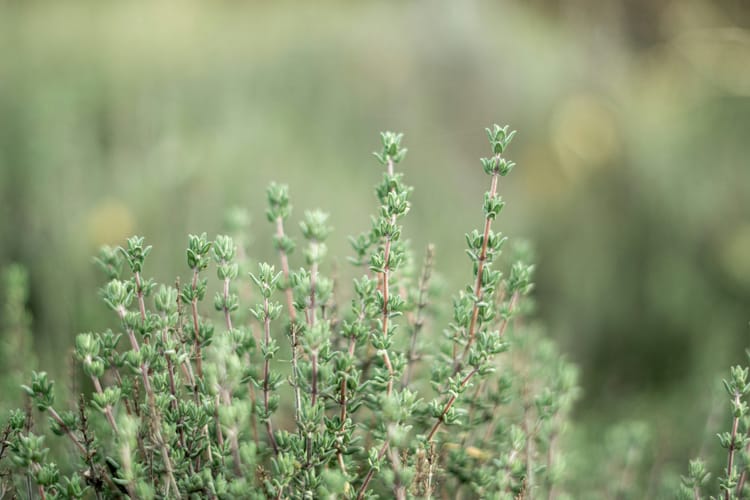
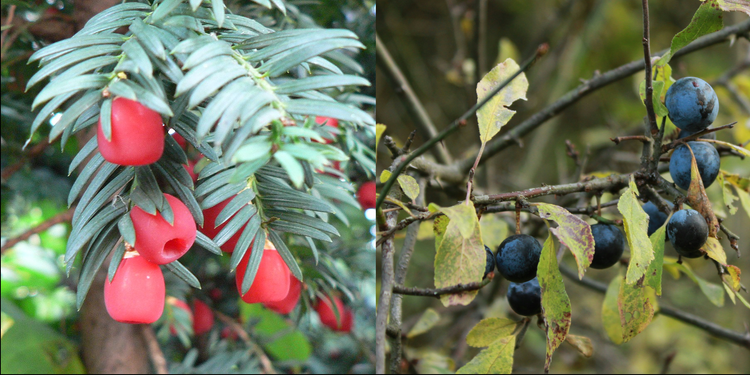
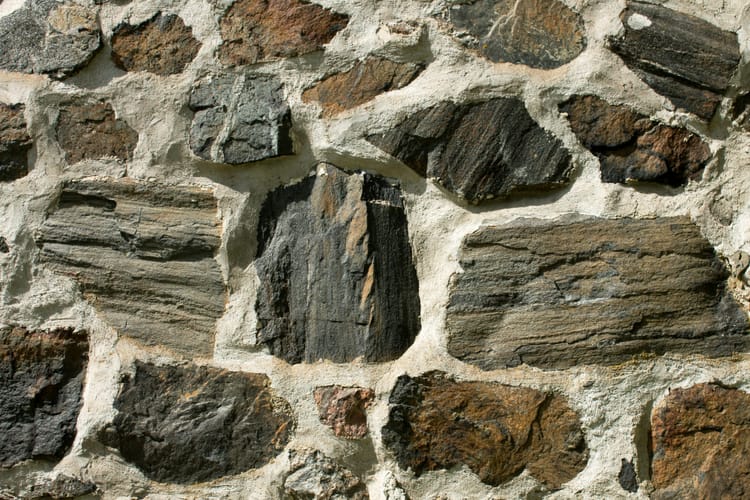
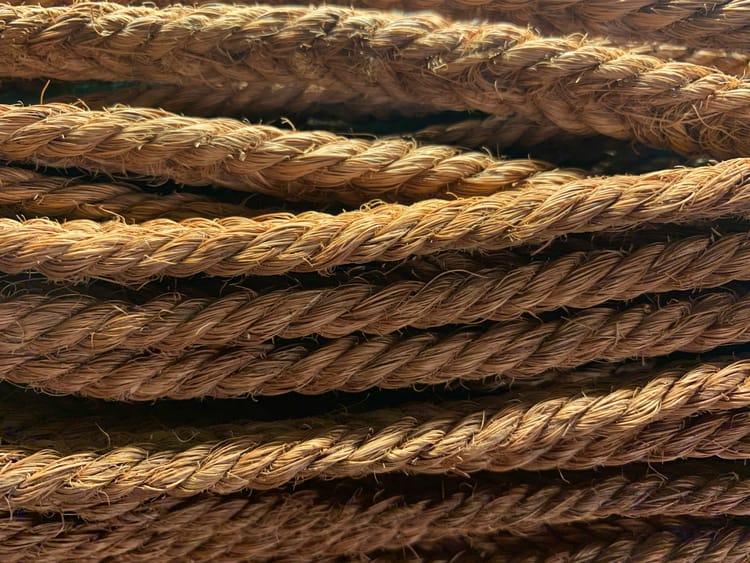
Member discussion